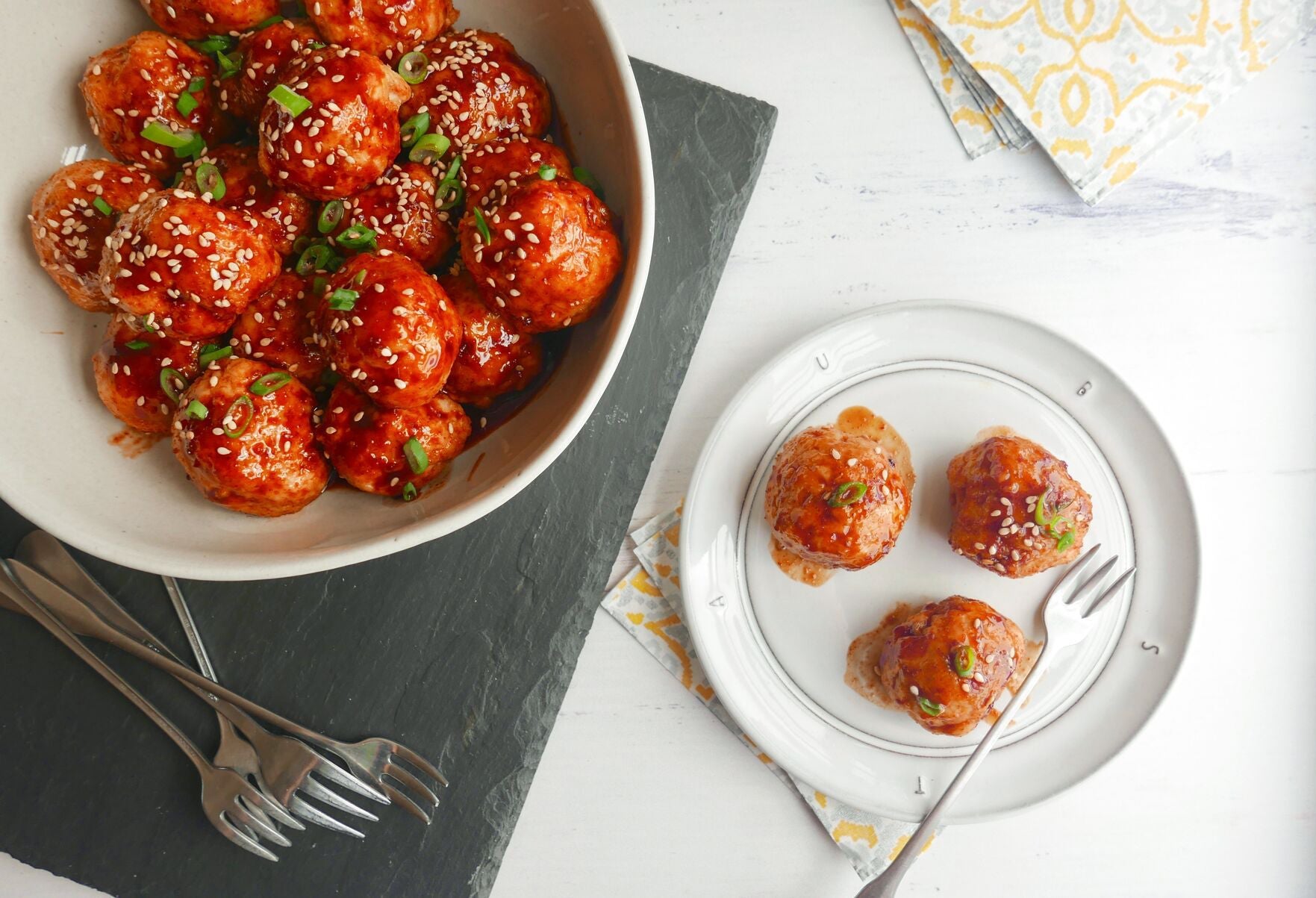How This Recipe Developer’s Korean Heritage Inspires Her Culinary Creations
In honor of AAPI Heritage Month, we're turning the camera on the food writer and photographer whose Korean heritage and Southern upbringing has inspired countless WW dishes.

If you’ve ever flipped through a WW cookbook or liked a dish you’ve seen on WW’s Instagram feed, you’ve encountered the work of Ann Taylor Pittman, the WW recipe developer responsible for everything from two-ingredient dough cinnamon rolls and sloppy Joe crunch wraps to Korean glazed meatballs, cauliflower fried rice, and jalapeno cheddar corn muffins. While Pittman has a knack for transforming internet food trends into WW-friendly treats, the James Beard Award-winning food writer’s early-onset passion for cooking stems from her nuanced heritage, which marries two distinct food cultures: Korean and Southern. Raised in Mississippi, the Birmingham, Alabama-based home chef launched her food career at Cooking Light magazine, where she worked for 20 years. Below, she talks to WW about her Korean-American upbringing and how it enriches her work today.
WW: Tell us about the kind of food you grew up eating.
Pittman: “My mother is from Busan, South Korea, and my father is, we joke, a really nice white guy from Mississippi. My parents got married in Korea, moved to the U.S. in 1968, and had my brother and me shortly after. They raised us in Mississippi where at the time, there weren’t any Korean restaurants, and Korean ingredients weren’t easy to find. I grew up with both Southern and Korean food traditions and an appreciation for both: We ate lots of biscuits, gravy, and garden vegetables, but also Korean noodles, Korean barbecue, and sauteed spinach with a splash of sesame oil.”
How was your family able to source ingredients?
“Once a month, we would drive to the nearest large city—Memphis, Tennessee—to get ingredients so my mom could prepare some of the Korean dishes she missed most. Although food was my mother’s way of tapping back into home, none of us joined her in eating certain foods like kimchi, which I was horrified by when I was a kid. (The other dishes she made were so good!) Now, Korean food always feels special because that’s the way I thought of it when I was growing up. I cook it more often than my mom did because I can run to any store and get what I need.”
How has your exposure to Korean food influenced your career and food philosophy?
“When I was 6 or 7 years old, we drove to Memphis to visit a new Korean restaurant we’d heard about—the first one I’d ever been to. When we walked into the converted three-story brick house, I remember smelling the most delicious charred meat, soy sauce, and garlic, and I was immediately intrigued. When eating Korean barbecue, you get to watch the transformation of meat from its unappealing raw state to the most appetizing charred bits of beef. Cooking it myself at the table was inspiring and made me feel like cooking was attainable and something I could do. Plus, I appreciated the experience of sharing a Korean meal: You don’t have your own dinner plate with a main and sides; instead, everyone sticks their chopsticks into the same seasoned soybeans, sauteed spinach, or grill—it’s intimate and quite lovely.
“As an adult, when I visited Korea, I found that Koreans appreciate vegetables and fish but treat meat sparingly, more as a condiment than the center of a plate. Now I think this is a very healthy way of looking at food.”
Have you encountered any challenges as a person with Asian heritage in the food industry?
“I have been incredibly fortunate that I have not experienced any outright racism or dismissiveness; I’ve always been encouraged and put on camera—and not in a token way. In school, however, every now and then I’d field an insensitive comment or dumb college boy who’d ask me to teach him kung-fu.
"Interestingly, when I was young, I actually thought I was white; when I was old enough to know I wasn’t, I thought I could pass for white, which is hilarious because I don’t look like a white person. As an introvert, I really didn’t want to be different in any way. It wasn’t until I started becoming more interested in Korean food and culture that I developed a deep appreciation for being different from people around me. As I embraced it, my career in food took off.
"Now I see my blended heritage as kind of neat: I’m Southern, and I’m Korean, and I have a real interest in healthy cooking.”
What misconceptions about Asian food or culture do you want to correct?
“One of the other things that really drives me bonkers is when people say that certain foods—like kimchi or dried fish—really stink. I’ve tried to raise my kids to recognize that just because something is different from what you’ve grown up eating, it’s not bad or stinky. I wish people would just say, ‘This is culturally different from what I grew up with.’”
What advice would you give someone who is working to honor multiple identities—what strategies would you suggest for being your total authentic self?
“My best advice is to fully embrace all parts of your heritage—you don't have to silence one to celebrate the other. They're both (or all) equally important in terms of who you are, and you can and should honor them equally. The sooner you can do that (unlike me, who tried to be white my whole childhood), the more authentic and at peace you will be.”
They're both (or all) equally important in terms of who you are, and you can and should honor them equally. The sooner you can do that (unlike me, who tried to be white my whole childhood), the more authentic and at peace you will be.”
--
This interview has been edited and condensed for clarity. For more bites from Pittman, follow @anntaylorpittman.